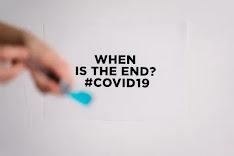Another year over and done with. The years seem to go by faster and faster as we get older, don't they? So it's time to pause and reflect back on the important, memorable items of 2022.
January. For several years my wife B and I have been spending February in South Carolina. This year we decided to go early. We left on January 22. And what did we learn? South Carolina is freezing in January. We both came down with nasty colds (not Covid, we tested) but according to B our colds were especially bad because we'd been isolating due to Covid. Our immune systems were out of practice.
February. We spent the month in Charleston, visiting children and grandchildren. In the past, my sister would usually join us from Arizona. This year she was going to bring along her two-year-old granddaughter. But the girl was too young to get vaccinated, so my sister didn't risk the trip. B's sister did fly in for a few days. She got sick too. Aside from our own problems, Russia invaded Ukraine on Feb. 24th. It's a terrible situation. We thought it would be over soon. But now it seems like it's going to drag on for who-knows-how long. Let's hope it doesn't escalate and involve European or American troops or, God forbid, "tactical" nuclear weapons.
March. When we got home we started in on our Center for Learning in Retirement. We hosted a discussion group on foreign policy and covered topics involving Asia and Latin America, as well as how changing demographics and climate change are affecting U. S. foreign policy. We had some lively and informative discussions. I remember how I used to dismiss older people as out-of-it and irrelevant. But our group has a good historical background. Some of them have lived and worked overseas. And all of them had sharp, cogent comments about the state of the world. Maybe it's not so bad to have an 80-year-old president.
April. Speaking of Joe Biden, a Federal judge struck down his mask mandate on airlines. A mistake, in my opinion. Also in April we found out inflation has risen to 8.5%. We're glad we already reserved our place in Charleston for next February when the price will no doubt be even higher. At this rate, how much longer will be be able to afford to go?
May. This month we crossed the threshold of 1 million Covid deaths. And yet . . . it's hard to find anyone wearing a mask, anywhere. Partly because of that, we haven't been going to restaurants. But now it's getting warm enough to eat outside. I love summer!
June. The Federal Reserve raised interest rates by 0.75%. That really doesn't affect us. We no longer have a mortgage. We paid off our car loan last year. Maybe this will mean we'll finally get some interest paid on our retirement savings accounts. In other news, Ketanji Jackson Brown was sworn in as the first black female on the Supreme Court.
July. Another mass shooting -- this one in Highland Park, Ill. Biden signed into law new gun-safety regulations. Do you think they will do any good?
August. We drove out to Madison, Wisconsin, to see my daughter and granddaughter. Madison is a university town and a "happening" place. Then we took a side trip to see the Frank Lloyd Wright house in Spring Green, WI. Author Salman Rushdie was attacked while giving a presentation at the Chautauqua Institution in upstate New York. We spent a week at Chautauqua a few years ago. It's a great place. And I guess it goes to show that nobody needs a gun to inflict pain and suffering. At least the guy didn't shoot up the audience.
September. We try to do an end-of-summer week or two in Cape Cod. But this year we decided instead to go to a place where the water is warm -- Charleston, SC. What we didn't count on was a hurricane. Hurricane Fiona brushed by the coast causing no rain but heavy surf. A few days later Hurricane Ian took dead aim at Charleston. We got out of there. Turned out Ian caused some flooding in the area, but nothing like what it did to Florida.
October. A U. S. House Committee subpoenaed Trump for documents and testimony relating to January 6, 2021. I don't know about you, but as horrible as the attack on the capitol was, I still think this investigation looks like revenge -- and it's certainly looking backwards. I wish instead that Congress could focus its efforts on bringing down inflation, on climate change, on the crisis at the border, the Federal deficit, the underfunding of Social Security and health care, and the list goes on and on.
November. The election. Republicans main a few gains, but Democrats did better than expected. In other words, more gridlock, more fighting, more arguments and angst. But is that so bad?
December. News reports say that travel has rebounded for the holidays. We just went to B's sister's house for Thanksgiving and Christmas, an hour-and-a-half drive away. My son and his girlfriend came down from New York for a day. We saw other family members on Zoom -- a technology I'd never even heard of in 2020 but now seems as simple as picking up the phone. So it's been a quiet December, at least for us, even if the world is still in turmoil.
What did I miss? More importantly, what do you suppose 2023 will bring?





.jpg)
.jpeg)
.JPG)
.JPG)





.JPG)
.JPG)
.JPG)
.JPG)
.JPG)


.JPG)
.JPG)
.JPG)
.JPG)